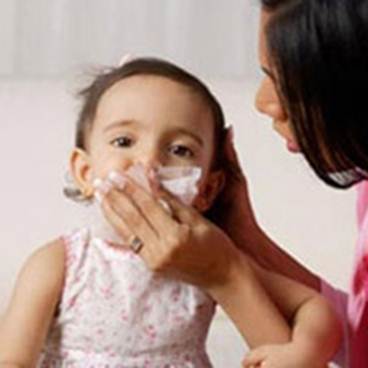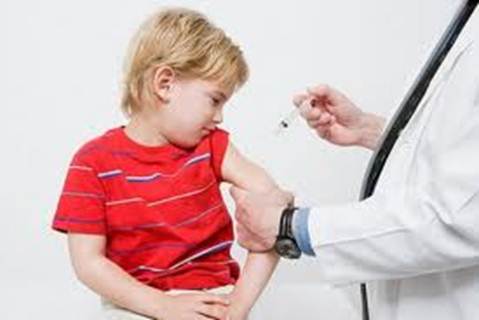Children have weak immune system, so allergy is popular
disease to children.
Allergy is popular disease to children. This disease is
easily infected and children’s immune system is weak. They don’t have enough
strength to prevent bacteria and virus. According to some recent researches,
children can catch allergy in the early, from 2 years old to over.
Most of the children catch allergy when they play together
in school, park or at home. Children easily catch allergy because they don’t
understand about the risk that causes disease. In addition, they are very
curious, try to taste everything around, clean nose unbiased, touch sand and
then touch food by hand. Hence, you need to teach children how to keep hygiene
and not let them rodent dirty things.

Children easily
catch allergy.
Symptoms of allergy
Feeling about inside itch and the area around the main nose
is one of the first symptoms of this disease. Besides, children can suffer from
running nose, have state of congestion of chest, difficulty in breathing,
sneezing regularly, coughing continuously, breathing with mouth and the state
of red eyes and wet.
If the above symptoms exist in many weeks, you can affirm
that children catch allergy. If these diseases aren’t diagnosed exactly, they
can lead to more complex complications such as sinusitis, poisoning of ears.
In special cases, if children usually catch allergy, they
can lose their hearing or catch asthma or eczema.
Reason of allergy
Most of popular reasons that cause allergy are dirt, strong
smells, some kinds of food, feather of domestic animal, mold and materials of
clothes such as wool. Tools for personal hygiene or detergent such as soap,
shampoo and shower cream can cause allergy. Some people, especially children
that are under 7 years old, tend to have allergy in skin because of the
reaction of body with chemicals that are used every day. Another element
causing allergy is genetics. If children’s parents catch such allergy, they are
able to catch the same disease. Although people define the reasons causing
these diseases, they can’t be free from diseases, except for food allergies.
Allergy diagnosis
The best way to define the agents causing allergy is testing
blood. However, these kinds of testing were proved that they were only
affective for three-year old or older children.

The best way to
define the agents causing allergy is testing blood.
For younger children, the only way to define the agents
causing allergy is learning about reasons, time to exist, degree of regularity,
considering if the state of allergy can occur seasonally or deal to the weather
so that we can give the most accurate conclusion.
Monitoring and recording the times when children catch
allergy can help doctors find out which kind of allergy children are acquired exactly.
How to prevent
Some common concepts in every daily life can help reduce the
discomfort of allergic children; for example, wearing natural cotton clothes,
not using blankets made from fabric which causes allergy such as wool…
Limit eating outside can lessen the danger of food allergy
due to street food that isn’t hygienic, usually uses a lot of chemicals and
preservatives.
Keep houses tidy, cleaning the dirt regularly, using wet
towers to make doormats and door curtains so that dirt can’t fly in house, not
raising some animals such as dogs, cats… will help to lessen the danger of allergy
when children are at home.
Follow sanitation rules and teach children how to follow
ones, especially hands, the part of the body which usually contacts with many
things being easy to cause infection.
Taking care of children carefully in period of transferring
seasons or change of weather helps increase resistance and resist agents
causing allergy due to weather.